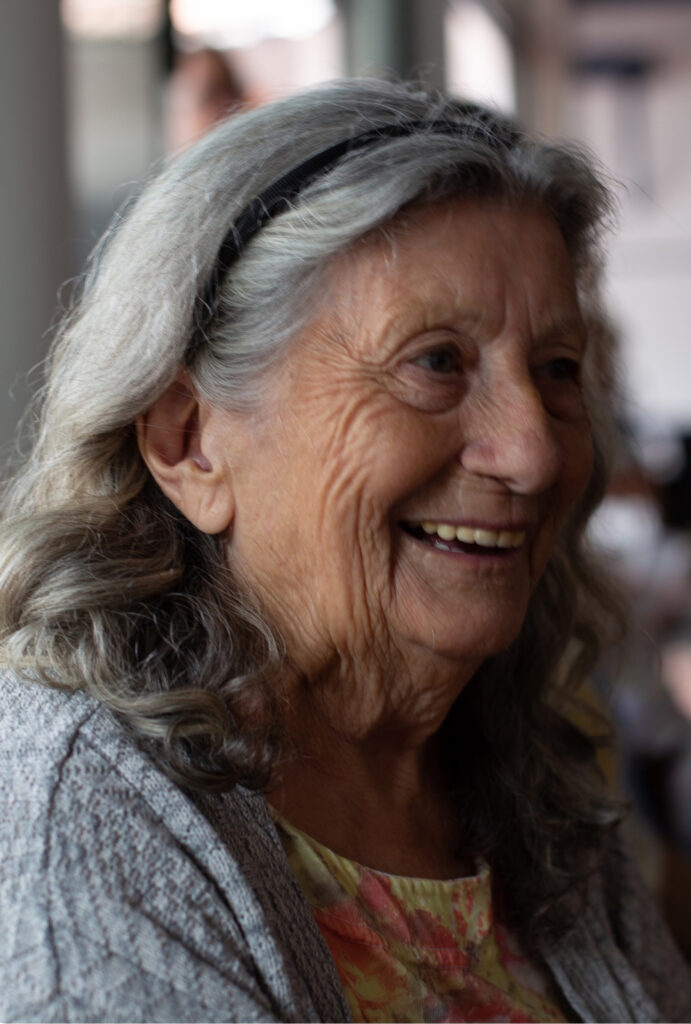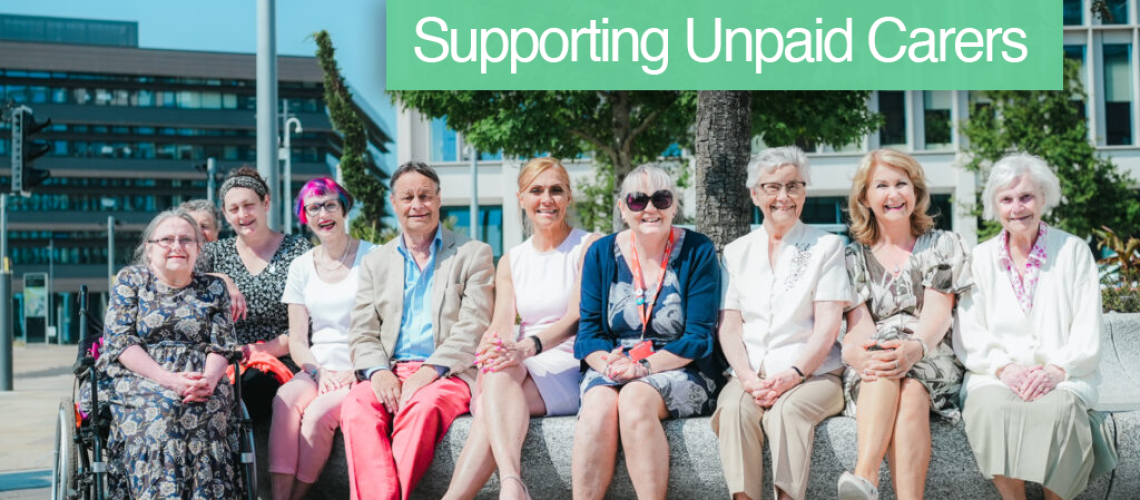Supporting Unpaid Carers through Technology : Tracy's Story
TRACY’S STORY
Tendertec has worked with the Connected Places Catapult and the University of Brighton to understand how we can support unpaid carers and help them build resilience in the caregiving role through technology.
THE CHALLENGE
Today there are over 11 million people aged 65 and over in the UK. In 10 years’ time, this will have increased to 13 million people. And, with the population ageing rapidly, the number of people at risk is growing at an alarming rate. As a result, it is expected that the need for care at home will increase.
Carers UK estimates that there are 11.5 million people across the UK who give unpaid support to someone who is elderly, seriously ill or disabled. By doing so, unpaid carers are saving the Government £193 billion a year.
Many carers don’t see themselves as carers and it can often take them time to acknowledge their role as a carer. Recent research has shown that several carers reported feeling out of control in their daily life, lonely and detached from society and want support for their own issues.
SUPPORTING CARERS IS VITAL TO CREATING A FAIR SOCIETY
Through the Connected Catapult’s Homes for Healthy Ageing programme, Tendertec set out to test its care support platform, Hestia, in real life home settings with unpaid carers at the Brighton and Hove council area. We have sought to understand how Hestia can support unpaid carers and enable them to build resilience in their caregiving role.
A snapshot of demand for adult social care in 2018/19 indicated that there are over 23,000 unpaid carers in Brighton & Hove. Nearly 2,000 of them maintained their caring role while also leading a life outside of their caring responsibilities.
Along with the University of Brighton and the Connected Places Catapult, we worked with unpaid carers to shed a light on their lives, their concerns and struggles.

MEET TRACY
Tracy is in her 80s and cares for her husband who is nearly 90.
Tracy and her husband were avid travellers as he used to be a pilot. Since his diagnosis of Parkinsons and Alzheimers, their lifestyle has changed drastically where they are now mostly bound at home as he feels happier and most safe there.
Tracy reports how they used to love going out to exhibitions and the theatre but now find this difficult which has a toll on her wellbeing. Her husband relies on Tracy a lot to do things around the house and general day to day activities.
She reports that it is difficult being a carer for her husband for more reasons than one and thinks it would help if she was able to share the caring responsibilities with a professional carer.
Tracy reported that not being able to do things spontaneously anymore had been the hardest things for the two of them as they used to be very active up until a few years earlier. Unfortunately, since Tracy’s husband was diagnosed with Parkinsons and dementia, their daily routine and lifestyle changed and are mostly housebound nowadays.
Tracy wishes she had more time to do the things she loved such as going to the theatre and going out with friends, having a nice meal with friends and family. Tracy tries to stay active by joining pilates and yoga classes which she feels help her wellbeing.
"You just get on with things you think..oh, this is going to help me, because I'm not really thinking about that when it comes to caring for him".
HOW HESTIA SUPPORTS UNPAID CARERS
Tendertec’s Hestia is an AI care decision support platform using machine learning and heat sensing to perform 24/7 hidden risks audit of missed hazards and early symptoms, without wearables and without needing any interaction from elders.
Hestia’s unique prevention and care insights help carers identify hidden risks at home and give them reassurance that their loved one is keeping well and safe by:
allowing carers to connect and check-in anytime & anywhere,
receive alerts and reconstruct missed incidents to understand why and how they happened,
flag risk behaviours even when they are not present.
Over the 12 week testing at the testbed in the Brighton and Hove area, Hestia delivered new insights that can support the mapping of unpaid carers’ valuable contribution as well as the impact that caring has on their lives and wellbeing.
TRACY’S EXPERIENCE
Early interventions to prevent falls
Tracy reported that the Hestia data and reconstructions helped her understand certain behavioural patterns of her husband and the time they occur throughout the day. More specifically, Hestia detected a number of falls/near-falls which were reported through the app.
“He swore he’d never fall ever…to see him sliding out of bed three times, it was quite a good wakeup call”, Tracy commented.
The reconstructions allowed Tracy to understand how the fall incidents happened, and since then they have been more careful around bedtimes as this showed up as the time when he was more likely to fall. In addition, Tracy had the opportunity to show the reconstructions to their Occupational Therapist and make adjustments in the bedroom. This provided better support getting on and off the bed, reducing the risk of falls.
Tracy expressed that if Hestia was used with other carers and health services, this could have even more of a benefit in preventing falls and/or letting her support network know about her husband’s movements.
67% of carers on an NHS waiting list said it was impacting negatively on their mental and physical health
Delivering better care
With the social and healthcare system being under extreme pressure, many carers have experienced delays in accessing the right channels of support for themselves and their loved ones.
Having access to the Hestia insights helped Tracy to have informed conversations with her GP and get access to the appropriate support channels within the NHS. As a result, the GP reviewed her husband’s medication and will have someone supporting them daily with her husband’s morning routine.
Meanwhile, Hestia further allowed Tracy to adjust how she cares for her husband and increase or decrease the number of check-ins. Hestia enabled Tracy to understand what time in the day incidents were more likely to happen and where inside the house. She reported that this helped to adjust certain things around the house. It also gave Tracy the opportunity to understand more about her husbands condition and be more alert. She mentioned that when being a carer you are constantly learning and it is always a good thing when you know more about it.
“Having the app helped me to build trust in its service, to tell me when there has been a fall or there were near falls”, adds Tracy.
"Having the app helped me to build trust in its service, to tell me when there has been a fall or there were near falls".
Improved mental wellbeing
For Tracy, seeing her loved one facing such difficulties due to his condition, made her feel that the future is bleak. She expressed she tends to lose her patience it can get quite stressful when it comes to caring for her husband by herself. However, this daunting feeling gradually went away, as Hestia helped her piece things together and get the help they needed.
Since her husband was diagnosed, they have also been more housebound which has affected her mental health and wellbeing as she feels she cannot leave him alone for too long, or cannot go to far away from the house without worrying.
Hestia’s insights allowed Tracy and her husband to get access support now targeted to their needs. With Hestia, Tracy felt that she could have peace of mind when she is going out, knowing that she would be alerted of any unusual behaviour.
In Tracy’s words: ” I hadn’t fully appreciated the technology until when my husband had the incidents…glad I signed up.”

Hestia is here to support carers in their caring journey.
If you would like to find out more about how Hestia can support you and your loved one, visit: https://tendertec.org/unpaid-carers/

